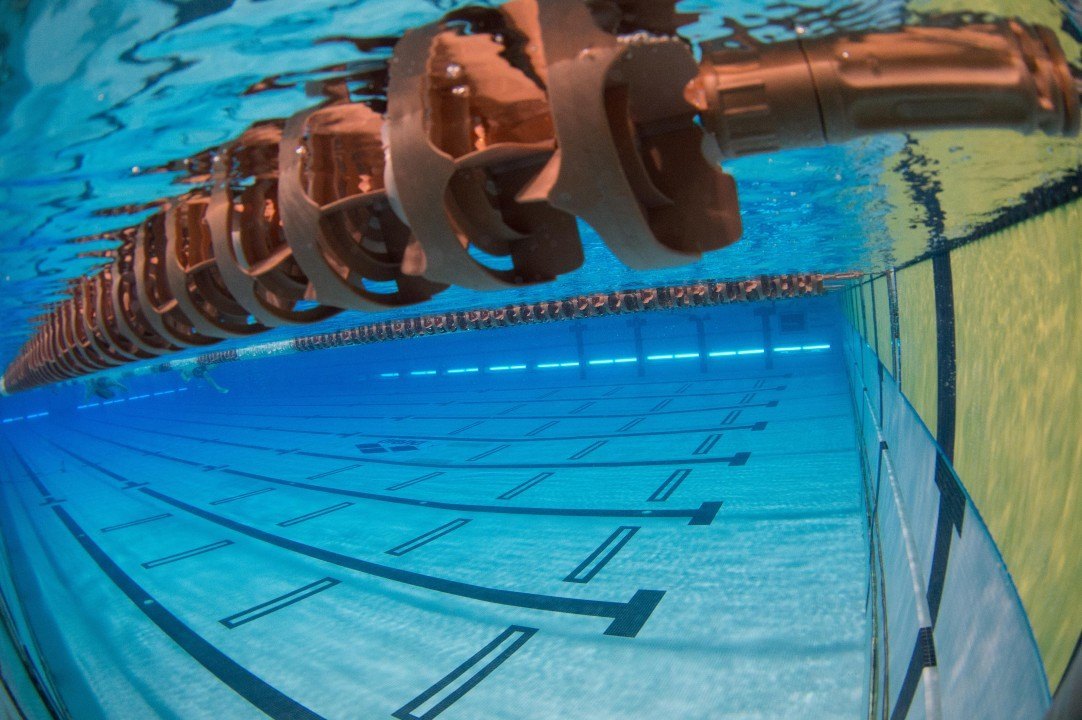Today, the NCAA Division II Committee for Legislative Relief approved a blanket waiver to allow all Division II swimmers who have achieved an Olympic Trials cut to continue training with their college coaches through the duration of the Trials.
Normally, the NCAA rules are very strict on out-of-season workouts conducted by college coaches, allowing only two days per week of out-of-season practices (usually interpreted as weights or strength practices). However, this waiver will allow athletes who would normally have to find a different coach to train under from March to June to continue their normal practice regimen in the road to Omaha.
The waiver also allows college coaches to train their athletes who have not yet qualified for Trials from March 13 (the end of NCAA Championships) to May 1, as a last-chance measure for those student-athletes to try and make the Trials times. To qualify for that part of the waiver, swimmers must be within 1% of the Olympic Trials cut for events 200 meters/yards or longer and 2% for those 100 meters/yards or shorter.
See the full release printed below from NCAA.org:
DII Committee for Legislative Relief Approves Blanket Waiver for NCAA Bylaws 17.1.6.1.2.1-(e) (sports other than football) and 17.21.7 (out-of-season athletically related activities).
The NCAA Division II Committee for Legislative Relief approved a blanket waiver to allow Division II men’s and women’s swimming student-athletes who have achieved a 2016 United States (U.S.) Olympic Team Trials qualifying time to continue to receive coaching instruction from their collegiate coaches through the U.S. Olympic Trials, beginning June 26, 2016.
For student-athletes who have not achieved an Olympic Trials qualifying time by March 13, 2016, (the day following the conclusion of the 2016 NCAA Division II Men’s and Women’s Swimming and Diving Championships), the waiver permits Division II swimming coaches to continue providing coaching instruction from March 13, 2016, through events ending May 1, 2016.
To qualify for this portion of the waiver, a student-athlete must achieve a time within one percent for events 200 meters/yards or longer and two percent for events 100 meters/yards or shorter of either the long-course meters or short-course yards time standards for the 2015 Senior National Championships. This portion also allows an institution to provide a qualifying student-athlete with expenses to participate in a meet until May 1, 2016. In order for student-athletes to continue to be coached by his or her collegiate coach beyond May 1 during the academic year, student-athletes must achieve an Olympic Trials qualifying time no later than May 1.

What are the rules for d3?
I 100% agree limiting the practices is silly for NCAA swimming. doing so puts additional financial burden on swim athletes – who are on partial scholarships anyway…. especially those who aren’t well off that have to pay for clubs in the off season. we all know that to swim at the top of your ability, year round is required. my swimmers’ pre college life was practice every day, all year long. I can only assume that stopping and starting training won’t be condusive. My swimmer has spent the last couple of years focused on SCY to get a scholarship. So he has no chance of making that trial cut this time. And what about late bloomers who kill it in… Read more »
Why is there even a restriction on training with your college coach all together? That makes no sense to me, is it just requiring athletes two days a week or only allowing contact two days a week? Seems counter productive to the development of the collegiate athlete..
What about non US swimmers prepping for their Trials or meets like Mare Nostrum that smaller countries use for selection and obtaining FINA “A” or “B” times.
Great just another advantage for the top programs. The rich get richer. Don’t get me wrong I understand in principle but in order for this not to be a competitor advantage you almost have to grant a blanket waiver for everyone. Some of these programs are going to have 8-12 of their top athletes in the water for extra coaching while the smaller less rich programs can’t do anything to try and bridge the gap.
My other question is does this rule apply to foreign athletes that have achieved the American Olympic trials cuts standard? Does it apply to foreign athletes that have achieved their countries Olympic trials standard? Lots of holes in this policy of you ask me!
is it about the athletes or the programmes? shouldn’t we coaches give our best to get the best out of the athletes?